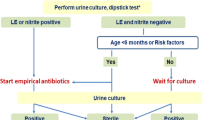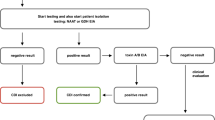Abstract
Purpose of Review
Fecal microbial transplantation (FMT) has become established as an effective therapeutic modality in the treatment of antibiotic-refractory recurrent Clostridium difficile colitis. A number of formulations and methods of delivery of FMT are currently available, each with distinct advantages. This review aims to review donor and patient selection for FMT as well as procedural aspects of FMT to help guide clinical practice.
Recent Findings
FMT can be obtained in fresh, frozen, lyophilized, and capsule-based formulations for delivery by oral ingestion, nasoenteric tube, colonoscopy, or enema (depending on the formulation used). Choosing the optimal method relies heavily on patient-related factors, including underlying pathology and severity of illness. As potential applications for FMT expand, careful donor screening and patient selection are critical to minimizing risk to patients and physicians.
Summary
FMT represents an excellent therapeutic option for treatment of recurrent Clostridium difficile colitis and holds promise as a possible treatment modality in a variety of other conditions. The wide array of delivery methods allows for its application in various disease states in both the inpatient and outpatient setting.
Similar content being viewed by others
References
Papers of particular interest, published recently, have been highlighted as: • Of importance
de Groot PF, Frissen MN, de Clercq NC, Nieuwdorp M. Fecal microbiota transplantation in metabolic syndrome: history, present and future. Gut Microbes. 2017;8(3):253–67.
Krezalek MA, DeFazio J, Zaborina O, Zaborin A, Alverdy JC. The shift of an intestinal “microbiome” to a “pathobiome” governs the course and outcome of sepsis following surgical injury. Shock (Augusta, Ga.). 2016;45(5):475.
Gopalakrishnan V, Spencer C, Nezi L, et al. Gut microbiome modulates response to anti–PD-1 immunotherapy in melanoma patients. Science. 2018;359(6371):97–103.
Gopalakrishnan V, Spencer C, Reuben A, et al. Response to anti-PD-1 based therapy in metastatic melanoma patients is associated with the diversity and composition of the gut microbiome. AACR; 2017.
Wargo JA, Gopalakrishnan V, Spencer C, et al. Association of the diversity and composition of the gut microbiome with responses and survival (PFS) in metastatic melanoma (MM) patients (pts) on anti-PD-1 therapy. Proc Am Soc Clin Oncol; 2017.
Wang Z-K, Yang Y-S, Chen Y, Yuan J, Sun G, Peng L-H. Intestinal microbiota pathogenesis and fecal microbiota transplantation for inflammatory bowel disease. World J Gastroenterol: WJG. 2014;20(40):14805–20.
Alverdy JC, Chang EB. The re-emerging role of the intestinal microflora in critical illness and inflammation: why the gut hypothesis of sepsis syndrome will not go away. J Leukoc Biol. 2008;83(3):461–6.
Morowitz MJ, Babrowski T, Carlisle EM, Olivas A, Romanowski KS, Seal JB, et al. The human microbiome and surgical disease. Ann Surg. 2011;253(6):1094–101.
Morowitz MJ, Carlisle EM, Alverdy JC. Contributions of intestinal bacteria to nutrition and metabolism in the critically ill. Surgical Clinics. 2011;91(4):771–85.
Medicine USNLo. Clinical trials: fecal microbiota transplantation. List of clinical trials involving fecal microbiota transplantation. Available at: https://clinicaltrials.gov/ct2/results?cond=&term=FMT&cntry=&state=&city=&dist=. Accessed 2/15/2018.
OpenBiome. Stool donation. https://www.openbiome.org/stool-donation/. Accessed 2/15/2018, 2018.
Costello SP, Tucker EC, La Brooy J, Schoeman MN, Andrews JM. Establishing a fecal microbiota transplant service for the treatment of Clostridium difficile infection. Clin Infect Dis: Off Publ Infect Dis Soc Am. 2016;62(7):908–14.
Paramsothy S, Borody TJ, Lin E, Finlayson S, Walsh AJ, Samuel D, et al. Donor recruitment for fecal microbiota transplantation. Inflamm Bowel Dis. 2015;21(7):1600–6.
Tariq R, Weatherly R, Kammer P, Pardi DS, Khanna S. Donor screening experience for fecal microbiota transplantation in patients with recurrent C. difficile infection. J Clin Gastroenterol. 2018;52(2):146–50.
Hamilton MJ, Weingarden AR, Sadowsky MJ, Khoruts A. Standardized frozen preparation for transplantation of fecal microbiota for recurrent Clostridium difficile infection. Am J Gastroenterol. 2012;107(5):761–7.
Van Nood E, Vrieze A, Nieuwdorp M, et al. Duodenal infusion of donor feces for recurrent Clostridium difficile. N Engl J Med. 2013;368(5):407–15. Excellent source for stool donor screening protocol.
Woodworth MH, Neish EM, Miller NS, Dhere T, Burd EM, Carpentieri C, et al. Laboratory testing of donors and stool samples for fecal microbiota transplantation for recurrent Clostridium difficile infection. J Clin Microbiol. 2017;55(4):1002–10.
Weil AA, Hohmann EL. Fecal microbiota transplant: benefits and risks. Open Forum Infectious Diseases. 2015;2(1).
Center TOSUWM. Fecal microbiota transplant (FMT) for the Treatmet of Clostridium difficile infection. https://evidencebasedpractice.osumc.edu/Documents/Guidelines/FMT.pdf. Accessed 2/15/2018.
Brandt LJ, Aroniadis OC, Mellow M, Kanatzar A, Kelly C, Park T, et al. Long-term follow-up of colonoscopic fecal microbiota transplant for recurrent Clostridium difficile infection. Am J Gastroenterol. 2012;107(7):1079–87.
Aroniadis OC, Brandt LJ, Greenberg A, Borody T, Kelly CR, Mellow M, et al. Long-term follow-up study of fecal microbiota transplantation for severe and/or complicated Clostridium difficile infection: a multicenter experience. J Clin Gastroenterol. 2016;50(5):398–402.
Kassam Z, Lee CH, Yuan Y, Hunt RH. Fecal microbiota transplantation for Clostridium difficile infection: systematic review and meta-analysis. Am J Gastroenterol. 2013;108(4):500–8.
OpenBiome. Welcome to OpenBiome. https://www.openbiome.org/welcome-providers/.
Kelly CR, de Leon L, Jasutkar N. Fecal microbiota transplantation for relapsing Clostridium difficile infection in 26 patients: methodology and results. J Clin Gastroenterol. 2012;46(2):145–9.
Rohlke F, Stollman N. Fecal microbiota transplantation in relapsing Clostridium difficile infection. Ther Adv Gastroenterol. 2012;5(6):403–20. Well-written overview of methodologic aspects of FMT for Clostridium difficile infection.
Lohsiriwat V. Colonoscopic perforation: incidence, risk factors, management and outcome. World J Gastroenterol: WJG. 2010;16(4):425–30.
Borody TJ, Paramsothy S, Agrawal G. Fecal microbiota transplantation: indications, methods, evidence, and future directions. Curr Gastroenterol Rep. 2013;15(8):337.
Borody TJ, Campbell J. Fecal microbiota transplantation: techniques, applications, and issues. Gastroenterol Clin N Am. 2012;41(4):781–803. This report is an excellent review of many of the technical aspects of FMT.
Borody TJ, Khoruts A. Fecal microbiota transplantation and emerging applications. Nat Rev Gastroenterol Hepatol. 2012;9(2):88. Review article detailing history of FMT, evidence supporting its use in recurrent Clostridium difficile infection, and potential application in patients with ulcerative colitis.
Brandt LJ, Aroniadis OC. An overview of fecal microbiota transplantation: techniques, indications, and outcomes. Gastrointest Endosc. 2013;78(2):240–9.
Kronman MP, Nielson HJ, Adler AL, Giefer MJ, Wahbeh G, Singh N, et al. Fecal microbiota transplantation via nasogastric tube for recurrent clostridium difficile infection in pediatric patients. J Pediatr Gastroenterol Nutr. 2015;60(1):23–6.
Postigo R, Kim JH. Colonoscopic versus nasogastric fecal transplantation for the treatment of Clostridium difficile infection: a review and pooled analysis. Infection. 2012;40(6):643–8.
Jeon YD, Hong N, Kim JH, Park SH, Kim SB, Song IJ, et al. Fecal transplantation using a nasoenteric tube during an initial episode of severe Clostridium difficile infection. Inf Chemother. 2016;48(1):31–5.
Kao D, Roach B, Silva M, et al. Effect of oral capsule– vs colonoscopy-delivered fecal microbiota transplantation on recurrent clostridium difficile infection: a randomized clinical trial. JAMA, 1993. 2017;318(20):1985. Randomized controlled trial demonstrating the non-inferiority of oral capsule-based FMT to standard colonoscopy-based FMT in treatment of recurrent Clostridium difficile infection.
Youngster I, Mahabamunuge J, Systrom HK, Sauk J, Khalili H, Levin J, et al. Oral, frozen fecal microbiota transplant (FMT) capsules for recurrent Clostridium difficile infection. BMC Med. 2016;14(1):134.
Youngster I, Russell GH, Pindar C, Ziv-Baran T, Sauk J, Hohmann EL. Oral, capsulized, frozen fecal microbiota transplantation for relapsing Clostridium difficile infection. JAMA. 2014;312(17):1772–8.
Jiang ZD, Alexander A, Ke S, Valilis EM, Hu S, Li B, et al. Stability and efficacy of frozen and lyophilized fecal microbiota transplant (FMT) product in a mouse model of Clostridium difficile infection (CDI). Anaerobe. 2017;48:110–4.
Lee CH, Steiner T, Petrof EO, et al. Frozen vs fresh fecal microbiota transplantation and clinical resolution of diarrhea in patients with recurrent clostridium difficile infection: a randomized clinical trial. JAMA. 2016;315(2):142–9. Randomized controlled trial establishing clinical equivalence of fresh and frozen FMT in treatment of recurrent Clostridium difficile infection.
Tang G, Yin W, Liu W. Is frozen fecal microbiota transplantation as effective as fresh fecal microbiota transplantation in patients with recurrent or refractory Clostridium difficile infection: a meta-analysis? Diagn Microbiol Infect Dis. 2017;88(4):322–9.
Perez E, Lee CH, Petrof EOA. Practical method for preparation of fecal microbiota transplantation. Methods Mol Biol (Clifton, NJ). 2016;1476:259–67.
OpenBiome. PersonalBiome. https://www.openbiome.org/personalbiome/. Accessed 2/15/2018.
OpenBiome. TREATMENT INFORMATION.
OpenBiome. FMT Capsule G3. https://www.openbiome.org/fmtcapsules/. Accessed 2/15/2018.
Ott SJ, Waetzig GH, Rehman A, Moltzau-Anderson J, Bharti R, Grasis JA, et al. Efficacy of sterile fecal filtrate transfer for treating patients with Clostridium difficile infection. Gastroenterology. 2017;152(4):799–811.e797.
Defazio J, Fleming ID, Shakhsheer B, Zaborina O, Alverdy JC. The opposing forces of the intestinal microbiome and the emerging pathobiome. Surg Clin. 2014;94(6):1151–61.
Banerjee S, Sindberg G, Wang F, Meng J, Sharma U, Zhang L, et al. Opioid-induced gut microbial disruption and bile dysregulation leads to gut barrier compromise and sustained systemic inflammation. Mucosal Immunol. 2016;9(6):1418–28.
Shakhsheer BA, Versten LA, Luo JN, Defazio JR, Klabbers R, Christley S, et al. Morphine promotes colonization of anastomotic tissues with collagenase-producing Enterococcus faecalis and causes leak. J Gastrointest Surg. 2016;20(10):1744–51.
Schuijt T, van der Poll T, Wiersinga W. Gut microbiome and host defense interactions during critical illness. Annual Update in Intensive Care and Emergency Medicine 2012: Springer; 2012:29–40.
Schuijt TJ, van der Poll T, de Vos WM, Wiersinga WJ. The intestinal microbiota and host immune interactions in the critically ill. Trends Microbiol. 2013;21(5):221–9.
OpenBiome. Staying healthy after your fecal transplant. https://www.med.unc.edu/gi/faculty-staff-website/patient-education/PostFMTPatientGuideOpenBiome.pdf. Accessed 2/15/2018.
Wang S, Xu M, Wang W, et al. Systematic review: adverse events of fecal microbiota transplantation. PloS One. 2016;11(8):e0161174. Systematic review of adverse events in patients undergoing FMT.
Kelly CR, Kahn S, Kashyap P, Laine L, Rubin D, Atreja A, et al. Update on FMT 2015: indications, methodologies, mechanisms and outlook. Gastroenterology. 2015;149(1):223–37.
Jiang ZD, Ajami NJ, Petrosino JF, Jun G, Hanis CL, Shah M, et al. Randomised clinical trial: faecal microbiota transplantation for recurrent Clostridum difficile infection—fresh, or frozen, or lyophilised microbiota from a small pool of healthy donors delivered by colonoscopy. Aliment Pharmacol Ther. 2017;45(7):899–908.
Hecker MT, Obrenovich ME, Cadnum JL, Jencson AL, Jain AK, Ho E, et al. Fecal microbiota transplantation by freeze-dried oral capsules for recurrent Clostridium difficile infection. Open Forum Infect Dis. 2016;3(2)
Staley C, Hamilton MJ, Vaughn BP, Graiziger CT, Newman KM, Kabage AJ, et al. Successful resolution of recurrent Clostridium difficile infection using freeze-dried, encapsulated fecal microbiota; pragmatic cohort study. Am J Gastroenterol. 2017;112(6):940–7.
Author information
Authors and Affiliations
Corresponding author
Ethics declarations
Conflict of Interest
The authors declare that they have no conflict of interest.
Human and Animal Rights and Informed Consent
This article does not contain any studies with human or animal subjects performed by any of the authors.
Additional information
This article is part of the Topical Collection on Nutrition and Obesity
Rights and permissions
About this article
Cite this article
Bhutiani, N., Schucht, J.E., Miller, K.R. et al. Technical Aspects of Fecal Microbial Transplantation (FMT). Curr Gastroenterol Rep 20, 30 (2018). https://doi.org/10.1007/s11894-018-0636-7
Published:
DOI: https://doi.org/10.1007/s11894-018-0636-7




